Festival 2024 > Speakers
Speakers
Here you can find the list of speakers, grouped by day.
Day 1 - 12 June 2024

Bernard Magenhann is a Chartered Accountant and a Registered Auditor. He started his career as an external auditor working successively for Mazars and PricewaterhouseCoopers. He joined the European Commission in Brussels in 2002 where he worked in the Internal Audit Service, notably as Assistant to the Director General and Head of Unit responsible for the Internal Audit of the Regulatory Agencies (2002–2011). He was in charge of Business Process Re-engineering in DG HR between 2011 and 2013. In 2013 he was appointed Resource Director in DG DIGIT. In 2016 he returned to DG HR where he was appointed Deputy Director-general, notably in charge of Organisational Development, Talent Management and Budget and Finance. Finally, he joined the Joint Research Centre on 16 May 2020 as Deputy Director-general. He is in charge of Nuclear Decommissioning and Waste Management, Nuclear Safety and Security, Digital Transformation and Data, as well as Strategy and impact and Support services.

Humberto Delgado Rosa is the Director for Natural Capital, DG Environment, European Commission. Previously he was Director for Mainstreaming Adaptation and Low Carbon Technology in DG Climate Action. He is experienced in European and international environmental policy, particularly in biodiversity and climate change issues. He served as Secretary of State for the Environment of the Portuguese Government from March 2005 to June 2011. Between 1995 and 2002 he was an advisor for environmental matters to the Prime-Minister of Portugal. He holds a PhD in Evolutionary Biology. H. Delgado Rosa was born in Lisbon in 1960.

Richard Kuehnel is the Director for Representation and Communication in Member States in the European Commission, responsible for 33 Representations and regional offices in the EU Member States and outreach to citizens. He joined the Commission in 2004 as a Member of the Cabinet of EU Commissioner for External Relations and European Neighbourhood Policy, Benita Ferrero-Waldner, and was responsible for multilateral relations and human rights. Kuehnel worked for ten years in Austria's national diplomatic service, including at the Austrian Embassy in Tokyo and the Permanent Mission to the United Nations in New York.
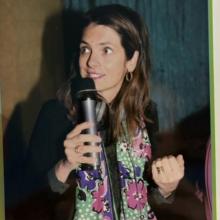
Charlotte Denise-Adam is a policy analyst at the OECD Public Governance directorate.
She is responsible for open government projects within the Innovative, Digital and Open Government Division.
She currently leads the Division work on open government and the green transition.

Jane Suiter is Professor of political communication at the School of Communications at Dublin City University and director of DCU's Institute for Future Media, Democracy and Society. Her research focus is on the information environment in the public sphere and in particular on scaling up deliberation and tackling disinformation. She has been involved in various research and oversight capacities on the Irish Citizens' Assembly (2012-2022) ) and was a founder member of We the Citizens (2011), Ireland’s first deliberative experiment.


Rich is the CEO of the Iswe Foundation and a democratic innovation specialist. In 2004 he founded Involve, which under his leadership became a leading international centre for democratic innovation research, innovation and policy-making. Since then he has been at the forefront of the new democracy movement; most recently co-founding a permanent Global Citizens’ Assembly designed to give millions of people a powerful voice in decision-making.

Anthony Zacharzewski co-founded the Brussels-based international association Democratic Society in 2006, of which he has been President since 2010. He has grown it to a multi-national organisation working across 31 countries to build new models of democracy and improve citizen participation and governance. Current projects include Net Zero Cities, the platform for the EU Cities Mission, where Demsoc leads the city interface and work on citizen and stakeholder engagement; and Networks for Democracy, a global network for participation practitioners, researchers and government.

Mark calls himself an avid democracy nerd and is an expert on deliberative processes including citizens assemblies, participatory democracy, and advanced stakeholder engagement. In his work with Democracy X, Mark coordinates local, national, and international citizen engagement and innovation projects. Notably he was the among the main moderators and designers of the citizens panels of the Conference on the Future of Europe. He is also a part of the management group of KNOCA, and the main convener of the network. Mark has a background as a political advisor in Danish parliament.

Nicole Donkers started her career in HR and institutional development at the Dutch Ministry of Foreign Affairs before moving to the private sector for organizational reforms. In 2004, she joined the Dutch Ministry of the Interior, where she led Open Government initiatives and managed EU-international affairs for 17 years. Since November 2021, she has been with the European Commission at DG REFORM, focusing on governance, civic participation, and public sector reforms. She holds a Master of Social Sciences and degrees in Art and Business Administration and is also a visual artist and ceramicist.

Matej Miklian works as a cross-cutting expert at the Office of the Plenipotentiary of the Government of the Slovak Republic for the Development of Civil Society. He holds a master's degree in socio-political philosophy and pursued postgraduate studies in management in Belgium. During his studies, he completed internships at the office of the quaestor of the European Parliament in Brussels and in the Department of Internal Policy of the Office of the President of the Slovak Republic. He has work experience from the European Parliament in Brussels and has undertaken several study visits to Norway (EEA Grants), Turkey (Erasmus+), and France.
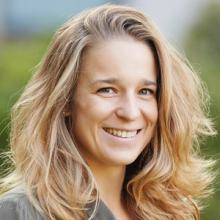
Alexandra Suchalová leads so-called Participatory Unit within the Office of the Plenipotentiary of the Government of the Slovak Republic for the Development of Civil Society, Ministry of the Interior of the Slovak Republic. A team of nine public servants helps to promote the principles of open governance, with an emphasis on participatory policy making. Alexandra completed her doctoral studies with a focus on the theory of politics in 2010 at Faculty of Social and Economic Studies, Comenius University in Bratislava and subsequently started work as a university teacher and researcher until 2021.

Dr. Silke Toenshoff is an experienced manager in the Communication Directorate of the European Committee of the Regions with a background in Policy analysis, politics and External relations. She leads the teams working on large scale events in Brussels such as the European Week of Regions and Cities and outreach activities throughout the EU as well as working on participatory democracy for regions and the programme for Young Elected Politicians (YEPS), more than 800 young politicians on the local and regional level in EU Member States and Candidate Countries.
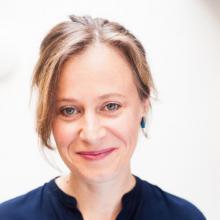
Marzia’s know-how builds upon 20 years of activity in various fields of public engagement in Research and Innovation (R&I). She is the CEO and founder of the Brussels-based SME Stickydot srl, dedicated to providing services in the field of stakeholder engagement in Research and Innovation. She works mostly with European cities, regions and research institutions, providing support in implementing co-design and co-creation processes in governance and R&I, focusing in particular on engaging societal actors.

Adriana is a dynamic professional committed to driving systemic transformations within cities as the mission lead for the Future Cities & Communities mission at Democratic Society. Her extensive experience in navigating sustainability transitions fuels her passion for enabling citizens and urban stakeholders to actively participate in designing and shaping the cities of tomorrow, as well as (re)imagining what's to come in our future climate-neutral societies.

Francesco Amodeo is policy officer at the competence centre for administrative capacity building at the Directorate General for Regional and Urban Policy. He is member of the team working on enhancing administrative capacity in Member States and improve the way they use and manage ERDF and CF funding. In particular, he works on strengthening the participation of citizens, including young people, in EU cohesion policy. Previously, he worked with public administration at national and local level on implementation of investments, reforms and innovative actions.

Former Deputy and Acting Head of the European Commission Representation in France, Gaëtane Ricard-Nihoul has held various positions as a European official. She has been part of the Common Secretariat for the Conference on the Future of Europe, more particularly in charge of the European Citizens’ Panels. She is now working on the follow-up to the Conference on the Future of Europe as Deputy Head of Unit in DG Communication. She also worked for the French Ministry of Foreign Affairs, as Deputy Secretary General for the Citizens Consultations on Europe and then Head of Department at the Mission Grand Débat. Earlier, she worked as Secretary General of the Jacques Delors Institute in Paris and for the Belgian Government, as advisor on European affairs.

In 2019, Colin was appointed Head of Cabinet to the Vice President of the European Commission responsible for Democracy and Demography, Dubravka Šuica. Previously, he served at the Ministry of Foreign Affairs of Malta, the EU Negotiations Secretariat, the Policy Unit of the High Representative for the Common Foreign and Security Policy, and the European External Action Service. Subsequently he was appointed he was appointed Middle East and North Africa Adviser in the Cabinet of the EU High Representative for CFSP and Vice President of the European Commission and served as Adviser on the Southern Neighbourhood of the EU. He is a graduate in Law (University of Malta) and International Politics (Université Libre de Bruxelles).
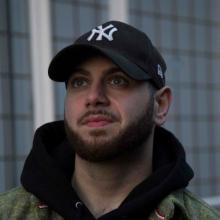
Lev Avitan (1996) is a spoken word-artist, political philosopher and theater maker. He is known for his artistic commitment to social causes and his vulnerable approach to self-reflection on stage. Recently, in collaboration with Rauwkost Production and Omroep HUMAN, a 40-minute spoken word film by him called My Mother Doesn't Want to Live Anymore was released. A movie which deals with societal topics such as ethnic alienation and discrimination, the rise of white supremacist far-right sentiments, but also with personal theme’s such as healing from trauma and mourning his parent’s passing. His work has been featured at events such as Lowlands and Down the Rabbit Hole festival, and as a philosopher, he has lectured poetically at Brainwash festival and for The School of Life.

Margherita Pevere is an artist and researcher whose practice glides across biological arts and performance with a distinctive visceral signature. Her inquiry hybridizes bio-technology, ecology, environmental politics, gender and death studies to create arresting installations and performances that trail today’s ecological complexity. Her body of work is a blooming garden crawling with genetically edited bacteria, cells, sex hormones, microbial biofilm, bovine blood, slugs, growing plants and decomposing re- mains. She would not be the artist she is today without the many collaborations across art, science and humanities. Together with Marco Donnarumma and Andrea Familari she co-founded the artists’ group Fronte Vacuo. She is member of the Finnish Bioart Society, of The Queer Death Studies Network and of The Posthumanities Hub. She is completing a PhD at Aalto University on biological arts and queer studies.
Day 2 - 13 June 2024

Dubravka Šuica leads the Commission’s work on deliberative democracy and the Conference on the Future of Europe. The Vice-President is also coordinating work on a long-term vision for rural areas and supporting youth education and employment through the Youth Guarantee. Ms Šuica served as Head of the Croatian European People's Party (EPP) delegation as a Member of the European Parliament from 2013 to 2019. She was Vice-President of the Council of Europe Congress of Local and Regional Authorities from 2004 to 2014.

Apostolos Tzitzikostas was born on September 2, 1978. He studied Government and International Relations at Georgetown University, in Washington DC. After graduating in 2000, he had his first working experience at the Office of the President of the Committee on Foreign Affairs of the United States Congress. In 2002 he obtained a Masters Degree on European Public Policy and Economics from the University College of London. Following his studies, he created his own company on the field of production, processing and standardization of dairy products, based on organic standards.

Hendrik Van de Velde is aged 51 and started his diplomatic career in 1997. He currently serves as the Director of the Secretariat of the Belgian Presidency of the EU Council, a significant role he has held since 2022. This position placed him at the forefront of Belgium's preparations and conduct of its presidency role in the EU Council in the first half of 2024.

Dominik Hierlemann is a Senior Advisor at the Bertelsmann Stiftung, a member of the foundation’s management committee, and an expert on European democracy and citizen participation. He has designed pioneering citizen participation projects in cooperation with German ministries and European institutions. One of his recent publications is “Under Construction. Citizen Participation in the European Union”. Dominik is a political scientist with a master’s in public policy and a doctoral degree in Social Sciences. He studied at the University of Konstanz, Germany, and at the Institut d'études politiques in Aix-en-Provence, France. For several years he taught and worked in Krakow, Poland, and in Sydney, Australia.

Laia Cortina Jarque is an organizational psychologist specializing in work well-being and talent development. With a Master's in Human Resources and a Bachelor’s Degree in Psychology, she has experience in various HR roles and Organizational Psychology research. As a certified coaching psychologist, she helps individuals and companies achieve their goals through evidence-based practices and tailored strategies.

For the last 10 years he has been involved in online marketing, designing visual identification and websites. He cooperates with companies and institutions in the field of positive and dignified image. He is an economist by education and worked in this profession at the beginning of his career. Today, he tries to shape, teach and promote positive values in enterprises. Through his behavior, he strongly promotes a human and understanding approach to other people based on respect and tolerance.

David has worked for the European Commission since 1995 and in the Joint Research Centre (the Commission's science and knowledge service) since 2011. Since July 2016 he has been head of unit responsible for research, tools and training on science for policy, collaboration & knowledge-sharing and participatory and deliberative democracy ("Science for Democracy and Evidence Informed Policymaking "). Between 2011 and 2016 he was responsible for the JRC work programme, science advice to policy and foresight. From April 2015 to December 2015 he was Acting Director for Policy Support Coordination.

Arya-Marie has been working at the European Commission since 2011, first at DG EAC, then RTD, and on the Prevention of Radicalisation for DG HOME since 2011. In her current position she is in charge of coordination of the Radicalisation Awareness Network (RAN) for Practitioners for the Commission and supervises the following working groups: families, Communities, Social care, Youth and Education, RAN YOUNG platform training the next generation of Prevention workers.

Mathieu Berger is Associate professor of sociology at UCLouvain and a research affiliate at EPFL-Lausanne, and at the EHESS-Paris. His research focuses on theories of democratic public spaces and on the social aspects of urban planning. Since 2015, he has been the general coordinator of Metrolab Brussels. He has published numerous articles and books, the most recent being : Designing Transdisciplinarity in Urban Research (2024), Ecologie humaine (2024), L'Espace public tel qu'il a lieu (2024), Whose Future Is Here? Searching For Hospitality In Brussels Northern Quarter (2020), The Lifetime of A Policy. Chronicle of Brussels Neighborhood Contracts (2019), and Designing Urban Inclusion (2018).

Deniz Devrim leads work on the protection and promotion of civic space at the Organisation for Economic Co-operation and Development (OECD). She oversees data gathering across OECD member countries (38) and advises governments on raising standards. She leads the OECD’s country assessments and technical support on strengthening legal, policy, and institutional frameworks and practices related to civic space protection. She has more than 15 years' experience working with intergovernmental organisations, the European Commission, research institutes, and civil society on good governance, human rights, and civic space.

Marleen Stikker is founder and executive director of Waag Futurelab in Amsterdam. Waag Futurelab reinforces critical reflection on technology, develops technological and social design skills, and encourages social innovation. Marleen leads the trans-disciplinary team of designers, artists and scientists, utilising Public Research and Key Enabling Methodologies to empower people to participate in the collective design of open, fair and inclusive futures. Marleen founded 'De Digitale Stad' (The Digital City) in 1993, the first virtual community introducing free public access to the Internet in Amsterdam. Marleen Stikker strongly adheres to the Maker's Bill of Rights motto: 'If You Can't Open It, You Don't Own It'


Léon is a French engineer. He completed Fab Academy in 2020 and worked as a Fab Manager for 2 years in a French Fab lab. Léon did a 3 months exchange at FabLab Skanderborg, Denmark, with MakerTour in 2023. He is involved in the French FabLab network and one of the leaders of the working group "Game, Arts and culture". With Vulca NGO, Léon visited Fab Labs and MakerSpace in Europe. His long term goal is to create a moving game Lab: a small Fab Lab on a cargo bike with a trailer that is centered on board games, video games and escape rooms/boxes.
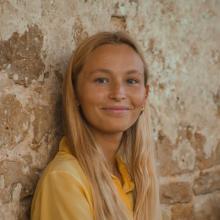
As an artist, Elisa Villota always tries to reflect in some way what she perceives in the places she selects to work in, which are usually spaces between the urban and the rural. Elisa is constantly looking for the public to feel appealed and to be able to relate to her work in some way. She uses technology as a tool to give a new point of view to what she sees, usually focusing on the specifics of the territory and the collective and individual memories found there.
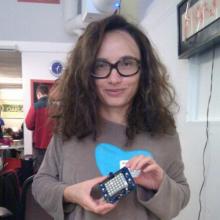
Dr. Denisa Reshef Kera, based at Bar Ilan University, leads a Design & Policy lab that focuses on AI simulations for engaging stakeholders in regulatory decisions, part of the Science, Technology and Society studies program. As the Czech Republic's appointed AI expert, she consults on national AI strategies and represents the country in international AI forums. Her book, "Algorithms and Automation: Governance over Rituals, Machines, and Prototypes, from Sundial to Blockchain," details her experimental governance approach. Dr. Kera's academic journey spans universities in Malta, Israel, Spain, Singapore, the US, and the Czech Republic.

Matteo Villa is a STEAM learning designer and program manager in the field of science engagement at TheFabLab, a digital fabrication laboratory. He have a long experience in the field of STEAM education and dissemination: he have been involved in educational research projects, conducting active analysis on the field and delivering academic publications and lessons. As a manager and researcher at National Museum of Science and Technology in Milan, he have worked in national and international projects on innovative strategies for science engagement, and in particular to the integration of modern technologies with artistic and creative approaches. He curated the scientific contents of one of the biggest YouTube channel in Italy. He have a Bachelor’s Degree in Philosophy and a Master’s Degree in Cognitive Sciences.

Erica is part of the EU Policy Lab: Foresight, Design & Behavioral Insights. As part of the innovative policy making mission they work on, amongst others, projects to engage citizens in the discussion on the future of the EU at an early stage. Erica has been actively initiating and engaging in participatory foresight & futures capacity building projects, both inside as well as outside the European Commission.

Elahe is a designer at the EU Policy Lab where she designs collaborative processes and creative tools to innovate policymaking. Previously she worked as a designer researcher at the University of Bologna, where she coached multidisciplinary teams of industry professionals and students in developing desirable ideas into viable businesses. She was also a leading educator and mentor in open innovation in collaboration with CERN IdeaSquare. Having gained her bachelor's in Industrial Design, and Masters with honors in Product Service System Design from Politecnico di Milano, she has worked in different countries designing digital services for a range of businesses from food to healthcare to mobility. Currently she spends most of her time at the art-science and policy nexus diving in speculative design for tangible futures.

Jemma Woolmore is a media artist whose work explores the spatial and emotional possibilities of light, sound and image in immersive and performative environments. Increasingly collaborative, her practice blurs the boundaries between real and virtual, intertwining ritual, workshop, VR and digital world-building as processes to build different relations with bodies and environments. Her artwork is shown internationally, with recent presentations at iMAL Brussels, Gropius Bau Berlin (DE), Musée d'art contemporain de Montréal (CA), Mass MOCA (USA), MIRA festival (ES), Mapping festival (CH), Sonos Studio (USA), Node festival (DE). She is a New Zealand artist, who is based in Berlin.
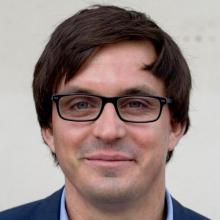
Mario Scharfbillig works on behavioural research in the area of evidence-informed policymaking at the Joint Research Centre of the European Commission since 2019. He is currently leading the work on values, identities and political intelligence as part of the Enlightenment 2.0 research programme. He is member of the advisory board to the Democracy & Belonging Forum at the UC and the Science for Policy Working Group at the European Geoscience Union. He received his PhD in economics from the University of Mainz, where he specialized in research on behavioural economics, public policy and corporate governance and where he managed the Interdisciplinary Public Policy (IPP) research group.

Laura Smillie leads the European Commission’s multi-annual research programme Enlightenment 2.0. The programme is identifying the drivers of political decision-making - exploring the extent to which facts, values, social relations and the online environment affect political behaviour and decision-making. Her work at the science/policy interface has helped ensure that EU initiatives including the Digital Services Act and the Strengthened Code on Disinformation are founded on the best possible evidence. Prior to joining the Commission in 2017, Laura has worked as a research institute director, as well as for profit and not-for-profit sectors. In 2010, she was appointed the Senior Communications Adviser and Deputy Director of Communications to the European Food Safety Authority (EFSA).
Day 3 - 14 June 2023

Salla Saastamoinen is Deputy Director-General in Directorate-General Joint Research Centre (JRC) at the European Commission. The Joint Research Centre is Commission’s science and knowledge service that provides independent, evidence-based knowledge and science, supporting EU policies to positively impact society. In the JRC, Salla Saastamoinen is in charge of the five scientific directorates working in the areas of Fair and sustainable economy; Energy, mobility and climate; Sustainable resources; Space, security and migration; and Health and food.

Dr John Bell is the ”Healthy Planet” Director in DG RTD, leading the European Green Deal research and innovation transitions on Climate Change, Oceans, Arctic, Water, Bioeconomy, Food Systems, Environment, Biodiversity, Circular Economy and Bio-based systems. This includes €10billion Horizon Europe investments and co-chairing the Governing Board of the €2billion Circular Bio-based Europe Joint Undertaking. He leads the deployment of the EU Bioeconomy Strategy and is the Deputy Mission Manager of the Mission “Restore our Ocean and Waters”.

Britt Kramvig is a professor in the Department of Tourism and Northern Studies at the Arctic University of Norway. Her research centers around questions of decolonization, locally embedded practices of reconciliation, indigenous/Sámi ways of knowing, and storytelling. Kramvig's work is internationally acknowledged as it embodies a unique dynamic interplay between art and science, fostering collaboration across disciplinary fields within and beyond academia. Kramvig has engaged with the concept of landscape through storytelling throughout her academic career, including her work on Sámi art, land- and soundscape and (de)colonialism, as well as work on the Arctic sea- and soundscape, including collaboration with world-known sound artists and international academic networks.

Tamara Metze (1972) is full professor in Public Administration at the Faculty of Technology, Policy and Management at Delft University of Technology. Trained in Political Science and Science and Technology Studies (both ‘cum laude’), with a PhD from the University of Amsterdam in Public Administration. Metze is an experienced project leader of transdisciplinary projects in which is experimented with boundary crossing collaborations for the governance of sustainability transitions (e.g. energy, food and the circular economy). In these projects, citizens’ science and participation are also included.

Elle Márjá is a Sámi Indigenous versatile artist and filmmaker with a rich portfolio, showcasing her talents in writing, directing, composing and producing numerous short films, art films, and music videos. Director of STOLEN - a Netflix Original Production (2024). The film was on the Top 10 list in a total of 71 countries after its premiere on 12th April 2024. Elle Márjá is one of the directors of the award- winning TV series POWER PLAY (NRK 2023) two wins at Canneseries 2023, including Best Series. She is currently in development of the documentary KEVISELIE and feature film BOUNDLESS. (fiction). She has also worked extensively in VR, including premiering her VR 360 film EALLU (Reindeer herd) at Árran 360 - The Sami Pavilion in Venice Biennale 2022. She is also a reindeer herder and belongs to the reindeer herding district Lákkonjárga.

Morten Hyld Pettersen is a musician, composer and producer. He has collaborated with Elle Márjá Eira for almost 20 years, and has contributed to several other projects musically. He is also known for his contributions to film scores, and his live performances provide audiences with a connection to the emotional power of the film world. He shares the stage with the multi-artist Elle Márjá Eira, and their long-term collaboration has resulted in a unique and distinctive soundscape. Their joint concerts will be an event for those who want to experience the magic of film through the language of music. Morten works at Duottar Studio in Kautokeino. Picture and sound is the main focus and interest.

My name is Vivi Vold - my Anaana is Emma Vold who is Indigenous Inuk from the southern part of Kalaallit Nunaat (Greenland) - My Pappa is Cato Vold from Norway a non- Indigenous.
Both are on the other side and are with me in spirit. I am a PhD Fellow and part of the work in the upcoming biology-program in Ilisimatusarfik, University of Greenland, and my research is called 'Silami nipaatsumi naapitta' can be translated to “Let us meet outside in silence”. In this project, the desire-based framework is applied to acknowledge Kalaallit knowledge, strengths and competencies that can support the creation of equitable and ethical interactions and relationships in scientific research and scientific education in Kalaallit Nunaat.
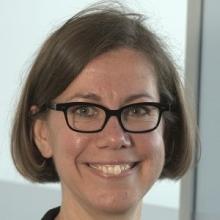
Saskia Vermeylen is a reader in law and property scholar at the University of Strathclyde in Glasgow, Scotland. Her work on Indigenous Peoples’ cultural property is informed by legal anthropology and she has done multi-site ethnography across 6 different language groups in Southern Africa. Her empirical work has also informed her research interest in property and ethics through a phenomenological reading of the work of Levinas and Derrida which she has brought into conversation with postcolonial literary studies. The latter has also inspired her interest in the extension of ‘colonial’ property frontiers into outer space and the deep seabed.

Gala Berger is a visual artist and independent curator, currently living in Lima, Perú. Berger‘s work is rooted in Latin America, and for the development of her projects she builds independent spaces. Co-founder of Casa MA (2018-2022) a community committed to the dissemination of creative practices generated by diverse identities in the territory of Costa Rica, Central America and its diaspora. Berger has also worked extensively in Buenos Aires, Argentina, where she is co-founder of La Ene (New Energy Museum of Contemporary Art 2010- 2020) experimental museum, and co-founder of the Paraguay Printed Art Fair. Also between 2012 and 2014, she directed two exhibition spaces: Inmigrante [Immigrant] and Urgente [Urgent]. She has held individual and collective exhibitions in Santo Domingo, São Paulo, Lima, Los Ange- les, Mexico City, Buenos Aires, Seoul, Querétaro, Sorocaba, Medellín, Montreal, Tampere, Río de Janeiro, San Juan, among others.

Pilar Rossany Arce Mahua (Metsá Rama) was born in the Paoyhan community, Loreto department, Ucayali province, Padre Márquez district - where the Invisible Seeds project has been developed. She currently lives in the Shipibo-Konibo Community of Cantagallo in Lima. She studied international relations and Bilingual Intercultural Education. She is a Shipibo artist, educator and translator who is dedicated to teaching, disseminating and enhancing the artistic expressions of the Shipibo-Konibo people. Watch an interview with Metsá Rama.
